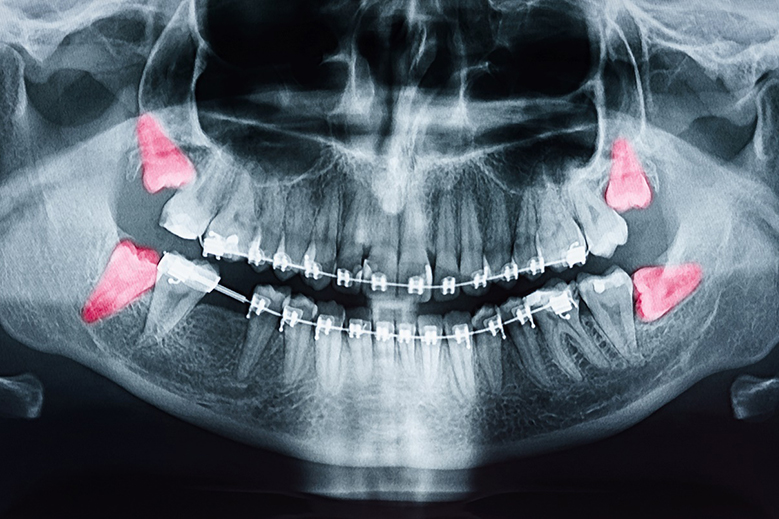
If you’ve recently noticed a new set of molars emerging towards the back of your mouth, you might be wondering what these teeth are. These are your wisdom teeth, and in most cases, their full or partial eruption can cause you a great deal of pain, sometimes accompanied by oral health complications. Luckily, our team here at North York Dental can easily remove your wisdom teeth and ensure that your smile is in optimal shape moving forward. In complicated situations, we can even refer you to a specialist if necessary. Keep reading to learn a little more about what you can expect during wisdom tooth extraction, or feel free to give us a call to schedule an appointment for you or a loved one.
Why Choose North York Dental for Wisdom Tooth Extraction?
- Friendly & Experienced Dental Team
- Comfortable Office with Modern Amenities
- Dental Insurance & Flexible Financing Available
What Are Wisdom Teeth?

Commonly referred to as third molars, wisdom teeth typically make their appearance during the later teenage years or early adulthood (most often between the ages of 17 and 25). Unlike your other two sets of molars, wisdom teeth often don’t have a sufficient amount of room inside the mouth to successfully emerge through the gumline. This usually results in impaction, which can be quite uncomfortable.
Although wisdom teeth were necessary for our early ancestors, humans have evolved to no longer need them. Changes in our diet, cooking techniques, and even our facial structure have made them no longer essential, and nowadays, they often cause more problems than they solve. Not to mention, since there’s often a lack of room for these teeth, they can potentially cause harm to other nearby teeth!
Why Do Wisdom Teeth Need to Be Removed?

It’s worth mentioning that some patients don’t need their wisdom teeth removed if they erupt without issues. However, most people tend to need theirs extracted before they can cause further damage. The most common reasons for wisdom tooth extraction include:
- Impaction (teeth that lie beneath the gumline)
- An infection that causes fever, swelling, or pain
- Continuous pain or pressure toward the back of your mouth
- Bite misalignment
What to Expect from the Wisdom Tooth Procedure

We want you to feel comfortable and confident about committing to wisdom tooth extraction; as a patient, you have the right to know everything that will be carried out during the process! After examining your situation, we can determine an appropriate course of action for your procedure; in the case of a more difficult or complicated situation, we might refer you to a specialist who will conduct the procedure under general anesthesia. Partially erupted teeth can be loosened and gently removed using special instruments; however, fully impacted teeth will require a surgical approach where the gums are opened, and each molar is removed in sections to help minimize the amount of bone loss.
Recovering from Wisdom Teeth Extraction

Once the procedure is complete, gauze is placed over the surgical sites to reduce bleeding and encourage healing; the blood clots that form over the sockets will play a very important role in the healing process. You’ll also need someone to escort you home if you’ve received anesthesia.
At home, it falls on you to follow your aftercare instructions closely to ensure a smooth and stress-free healing process. You should take your medications as prescribed, use cold compresses to alleviate swelling, and show extra caution when cleaning your mouth. You’ll also be expected to remain on a liquid diet at first, before transitioning to softer foods when capable. Some other general tips to keep in mind include:
- Don’t use a drinking straw, as the suction might disrupt your blood clots.
- Avoid exercise or strenuous physical activity for the first week or so.
- Refrain from smoking or using tobacco products.